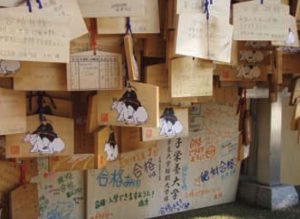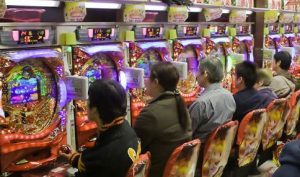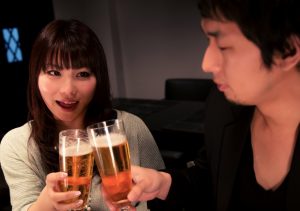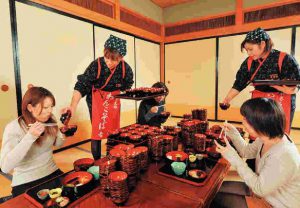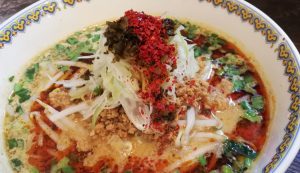What is Ema in Japanese?
Ema (絵馬 えま) Japan is a land of many deities. This is the time of the year when Shinto shrines receive a flood of supplications to the god of knowledge. These ema (wooden votive tablets) bear students’ prayers for passing school entrance examinations. Since people are always requesting special favors, gods in Japan aren’t able […]
What is your image of a head-hunting company in Japan?
What is your image of a head-hunting company? 1. A chance to increase my annual income 2. A chance to assess my value 3. Benefi cial to changing jobs 4. A good source of information 5. Lack of the protection of personal information 6. Doubtful since the system is not clear 7. None of […]
What are the strengths of Japan and Japanese?
What are the strengths of Japan and the Japanese? 1. History and tradition 2. Beautiful nature 3. Art and culture 4. Low crime rate 5. Diligent work ethic 6. Freedom and peace 7. Humanity and politeness 8. Advanced scientific technology 9. High educational standards 10. Economic prosperity Source: The Cabinet Office David Atkinson was once […]
What is Pachinko?
Pachinko (パチンコ) Pachinko is a game invented in Japan and sometimes described in English as “Japanese pinball.” Some new ideas and devices have been added to pachinko machines such as incorporating the function of a slot machine. Most people play pachinko just for fun, but some do it for a living. Pachinko is not a […]
sento
Sento (銭湯 せんとう) A sento is a public bath which people have to pay for. But in recent years, sento are gradually decreasing in number all over Japan mainly because most people now live in houses with baths. Even now, however, sento are indispensable to some people who do not have baths at home, and […]
compa
Compa (コンパ) Compa (or Kompa) is student slang that comes from the English word “company.” It refers to a party organized by students, especially by club members. Among the most popular club kompa are shinkan‐kompa (welcome parties) and oidashi‐kompa (farewell parties). And there are also go‐kon (short for godo‐kompa) arranged among different universities. Students often […]
Managing ”Culture Shock” While Working in Japan
Managing Culture Shock Working in Japan By Patricia Pringle For Americans, working with the Japanese in a business is a challenging cultural adjustment. Even though both sides share a great many values in business, such as respect for education, enthusiasm for new technologies, and honest dealing, assumptions about working can be very different. In order to […]
wankosoba
Wankosoba (わんこそば) Wanko Soba, an Original of Eating Contests, Has Roots in a Feast for a Local Lord Wanko Soba is a historic culinary specialty of Iwate Prefecture. It is a unique and entertaining way to enjoy buckwheat noodles. Every time you finish a bowl of noodles, a waitress standing over your table immediately fills […]
Japanese Salary Man's Favorite Dish Ramen Spread from “Nankin-machi” Throughout Japan
Ramen (ラーメン) Ramen is a fixture in magazine articles and TV programs featuring food. Ramen is indeed one of Japan’s most popular dishes. It is a well-known fact that the roots of ramen lie in China, but the question is, how did ramen make its way to Japan from China? A wide variety of food […]
How to Motivate Employees in Japan
By Patricia Pringle How to Motivate Employees in Japan Charlie, who had been working at a Japanese manufacturing company for just over a year, did not feel appreciated. His company had just delivered their product to the market, after a race to rescue the schedule from some unforeseen setbacks. Everyone had pulled together as a […]

